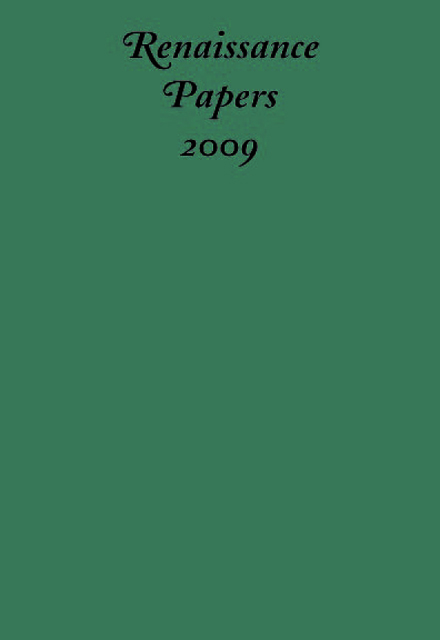Book contents
- Frontmatter
- Contents
- Dedication
- Landino, Vergil, and Plato
- Experto Crede: Stephen Gosson and the Experience of the Critic
- “Lowe and lay ministers of the peace”: The Proliferation of Officeholding Manuals in Early Modern England
- Becoming Spiritual: Authority and Legitimacy in the Early Modern English Family
- The Fourth Couple in The Taming of the Shrew
- “This Senior-Junior, Giant-Dwarf Dan Cupid”: Generations of Eros in Shakespeare’s Love’s Labor’s Lost
- “Chaucer (of all admired) the story gives”: Shakespeare, Medieval Narrative, and Generic Innovation
- “A Queen, a Woman, and a Victor”: The Rhetoric of Colonization in Defense of Queen Isabel in Elizabeth Cary’s The History of the Life, Reign, and Death of Edward II
- Redeeming Love—Herbert’s Lyric Regeneration
Experto Crede: Stephen Gosson and the Experience of the Critic
Published online by Cambridge University Press: 01 March 2023
- Frontmatter
- Contents
- Dedication
- Landino, Vergil, and Plato
- Experto Crede: Stephen Gosson and the Experience of the Critic
- “Lowe and lay ministers of the peace”: The Proliferation of Officeholding Manuals in Early Modern England
- Becoming Spiritual: Authority and Legitimacy in the Early Modern English Family
- The Fourth Couple in The Taming of the Shrew
- “This Senior-Junior, Giant-Dwarf Dan Cupid”: Generations of Eros in Shakespeare’s Love’s Labor’s Lost
- “Chaucer (of all admired) the story gives”: Shakespeare, Medieval Narrative, and Generic Innovation
- “A Queen, a Woman, and a Victor”: The Rhetoric of Colonization in Defense of Queen Isabel in Elizabeth Cary’s The History of the Life, Reign, and Death of Edward II
- Redeeming Love—Herbert’s Lyric Regeneration
Summary
In the summer of 1579, London publisher Thomas Woodcock issued a pamphlet entitled The Schoole of Abuse by poet, playwright, and sometime actor Stephen Gosson. This thin octavo, which in learned yet folksy prose decries the abuse of music, poetry, drama, and other popular pastimes, quickly ignited widespread critical debate. Responses to Gosson spanned the literary kinds, and interested parties covered the social spectrum from the lowliest players of the newly built London theaters to the court of Elizabeth I. On stage, Gosson was satirized in the Play of Plays (1582) and indicted as a hypocrite through the facetious staging of two of his own plays. Off stage, he was attacked both publicly and privately, formally and personally. He may even have received death threats. “You thought poetrye should want a patron (I think) when you fyrste published this invective,” writes a young Thomas Lodge to Gosson, “but yet you fynd al to many, even preter expectationem.”
The brightest spark cast by the ensuing clash came from Philip Sidney, to whom Gosson had dedicated his pamphlet. Sidney’s Defence of Poesy (c. 1580) would soon be recognized as the definitive critical treatise of the day, a distinction it has held ever since. In 1598, it would be published alongside the Arcadia and Astrophil and Stella, registering its swift canonization among English readers. By that point, Sidney had been sublimated into a romantic myth, and Gosson had left the feud behind for a successful career in the church. We now know Gosson chiefly as the face that launched the Defence of Poesy. The extent to which he has been reduced to a foil for Sidney’s brilliance can be gauged by the number of modern critics who offhandedly and dismissively label him a “Puritan”—this man, who forcefully inveighs against Presbyterianism in his sermons and was advanced in the church by Bishop Bancroft, educated alongside Richard Hooker at Corpus Christi, and reared in Canterbury. A tendency to lump Gosson together with other opponents of the stage, and The Schoole of Abuse together with its more resolutely and narrowly antitheatrical sequel, Playes Confuted in fiue Actions (1582), has caused the independent interest and specific claims of the pamphlet to be overlooked.
- Type
- Chapter
- Information
- Renaissance Papers 2009 , pp. 21 - 36Publisher: Boydell & BrewerPrint publication year: 2010



